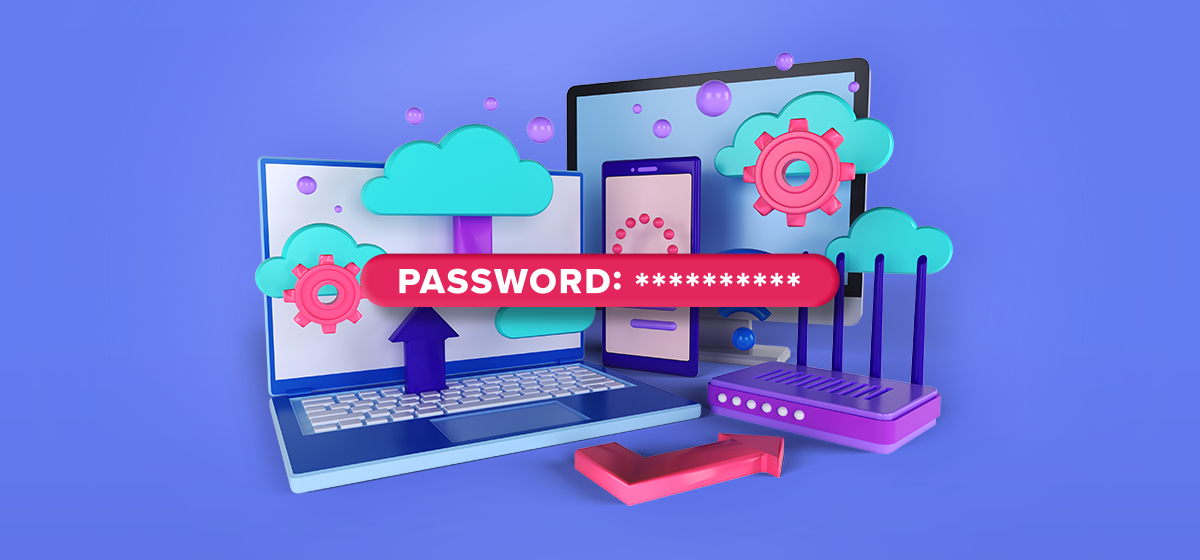In the digital age, where we live practically our entire lives online, it’s more important than ever to take cybersecurity seriously. Your bank account, email, Netflix, Facebook photos are all just one password away from prying eyes. So, why make it easy for hackers to access your accounts and wreak havoc with your personal information?
Protecting your passwords is the most important first step to securing your data, fending off internet fiends, and keeping your personal information private. Make your password a hacker’s worst nightmare using the five tips listed below.
There’s strength in numbers
Starting off strong is the most important first step to ensuring online security. Are you guilty of setting your password to something easily guessable like your birthday, your dog’s name or even worse, a simple string of numbers as a password? Did you know that a simple password like “abcdefg” or “1234567” can be cracked by a hacker in 0.29 milliseconds? Whereas a password with 12 characters can take up to two centuries to crack? Well, don’t fret, there’s still time to fix this mistake! According to Microsoft’s article “Create and Use Strong Passwords,” a strong password should include:
- At least 12 characters
- A combination of upper and lowercase letters, numbers, and symbols
- Ex: StAyAwAyHaCk3r$123
- Never the name of a person, popular place, character, product, or organization
- Easy to remember but difficult to guess
Sharing isn’t always caring
You should never share your passwords – with strangers, besties, or even your grandma! This is especially important if you’re the type to have the same login information spread across multiple accounts. If you really insist on sharing your Netflix, never send that information over an unsecured communication line, i.e., text, instant message, or email – FaceTime is your friend here!
Different strokes for different folks
Raise your hand if you’re the type of person who has the same password for every online account. According to a 2019 online security survey by Google, if your hand is currently up, you’re one of more than 65% of online users who participate in the password reuse problem. Diversifying your profiles is vital for protecting your personal information. Secure your data by creating a unique login for every account you use. For example, if a hacker was to get ahold of your Netflix account password, aside from losing your spot in all your favorite shows (a tragedy itself), the hacker now might have access to your email, social media, and even bank accounts. Don’t break the bank, or lose your spot in Breaking Bad, over one lousy login.
Log all your logins
If creating a unique password for every site you visit sounds daunting – there’s an app for that! In fact, there are several, and they’re called password managers. Unless you’ve got the memory of a robot, keeping track of every login in your noggin can be nearly impossible. Password managers are designed to store your various usernames and passwords, encrypting them so they can all live in one place securely without compromising convenience. They also often autofill your login fields and sync across multiple devices for a hassle-free way to avoid hackers. If you need some suggestions on where to start, PC Mag put together a list of the best password managers for 2020.
Make multiple forms of ID necessary
If you’ve ever rented a car, you might have had your driver’s license checked against a second form of ID. Lots of online services now offer similar second steps when entering account information. Sometimes not even a strong password is enough to deter a motivated hacker, so take advantage of two-factor authentication when possible. Some websites send out a second digital code via text or email that needs to be entered before accessing your accounts. There are also alternative options like answering security questions or submitting a shorter pin in addition to the password. While it may feel like more of a hassle at the moment, Hackerman321 will be stopped dead in his tracks with two-factor authentication on an account.
Protect your passwords from internet espionage. The next time you’re creating a new account, refer to the tips above to ensure your data is secure.
Looking for more technology tips? Check out our Staying Secure page for additional digital age help.

1 comment
Absolutely amazing
Comments are closed.